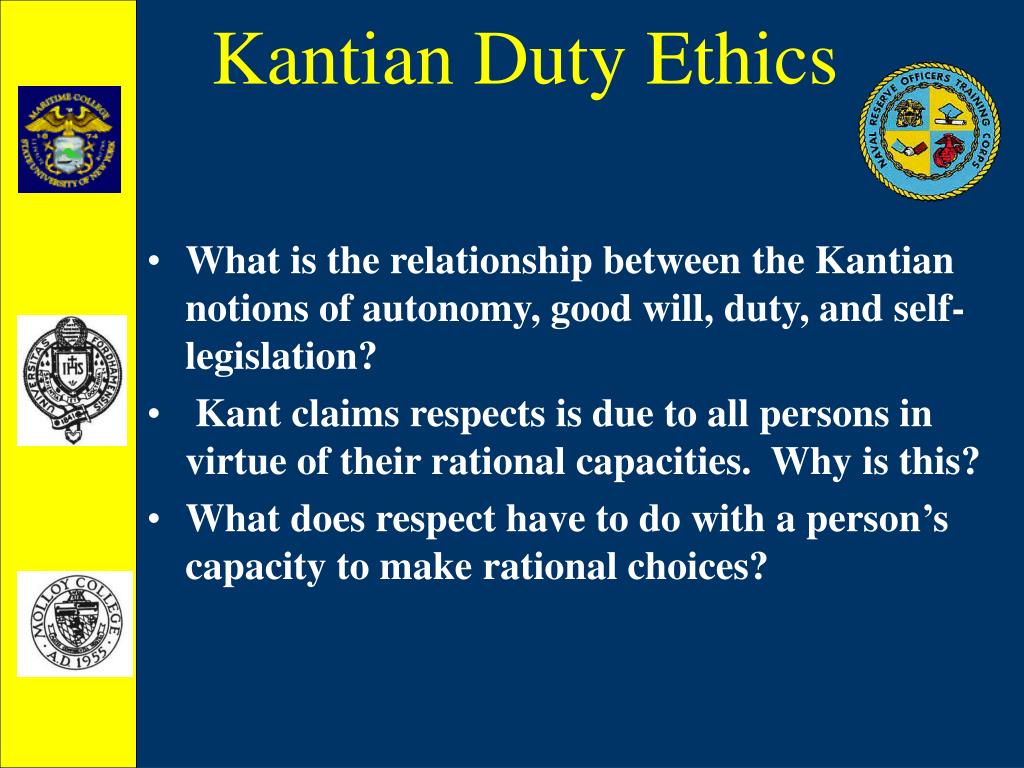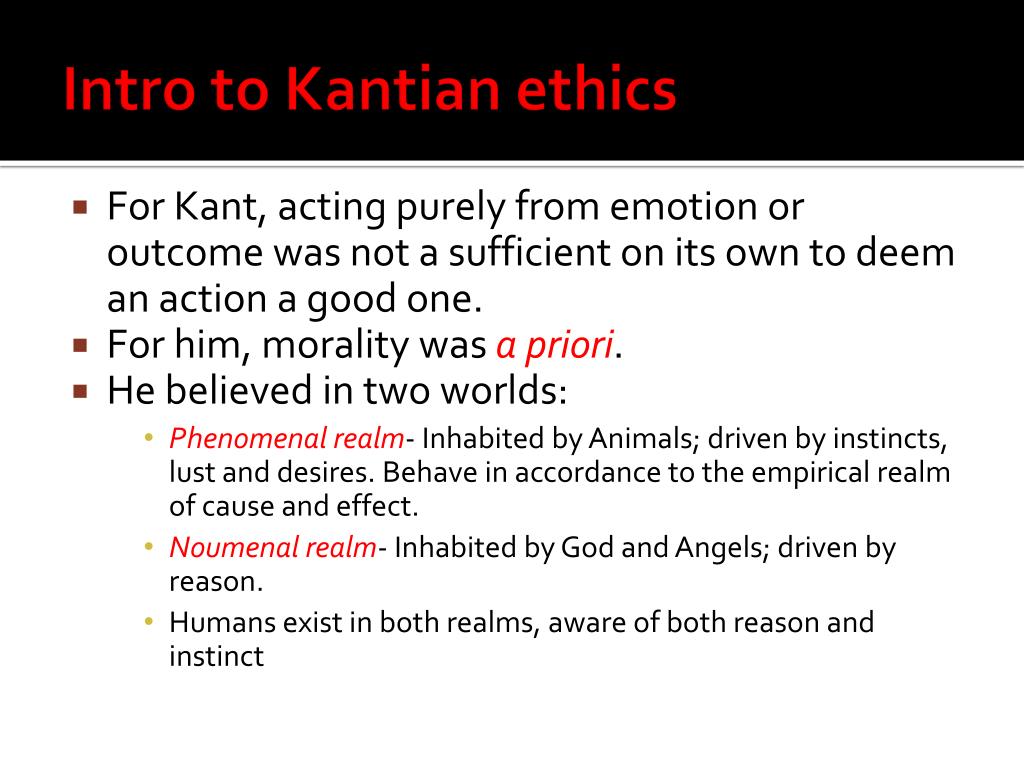
E.g Lying – Kant thinks lying cannot be universalised because if everyone were to lie, there would be no such thing as truth anymore. The test if whether you can rationally will that everyone do what you want to do. The maxim of your will is the moral statement of what you want to do. Kant says ‘Act only according to that maxim by which you could at the same time will it become a universal law’. This is the first claim that we should only do something if everyone can do it. The first formulation of the categorical imperative He even thought of the idea of the United Nations. Kant’s universal absolutist ethics was very influential on our current theory of human rights.

However, we have a moral duty to follow the universal moral law categorically, i.e., regardless of our desires. As rational beings we may adopt ends that are not categorical, which makes them hypothetical. A hypothetical imperative is a moral action that a rational will adopts for reasons other than duty (you should do X if you want Y). Kant called this the categorical imperative, something we have a duty to always do (you should do X). So, reason tells us that we should only act on principles that can be followed by everyone. However, reason tells us we are all equal. It seems to follow from this that if I did an action that couldn’t be done by everyone, then I would have to think that I was somehow special or better than others. Reason tells us that other people are also rational agents, so in that regard we are all equal. He claims that what it means to be human is to be a ‘rational agent’, which means to have reason and be able to make choices towards ends (goals). Kant, however, thought that reason could discover a moral law in reason itself. Everyone would either agree or there would at least be the hope and possibility of coming to agreement through rational discussion.Īquinas’ Natural law had claimed that reason can discover the natural moral law in our nature. If ethics could be based on reason, Kant conceived that a harmonious society of rationality would be established.

Countries never went to war because of disagreements about whether 1+1 was equal to 2, because everyone agrees or at least can agree on questions of reason.

The problem was that those of different faiths could never come to agreement. Religious warfare had been greatly destructive in Europe. An important goal Kant shared with other enlightenment thinkers was to bring religion and ethics within the boundary of reason, not of faith. Kant was part of the European enlightenment movement. Ethics Introduction: Kant’s attempt to base morality on reason


 0 kommentar(er)
0 kommentar(er)
